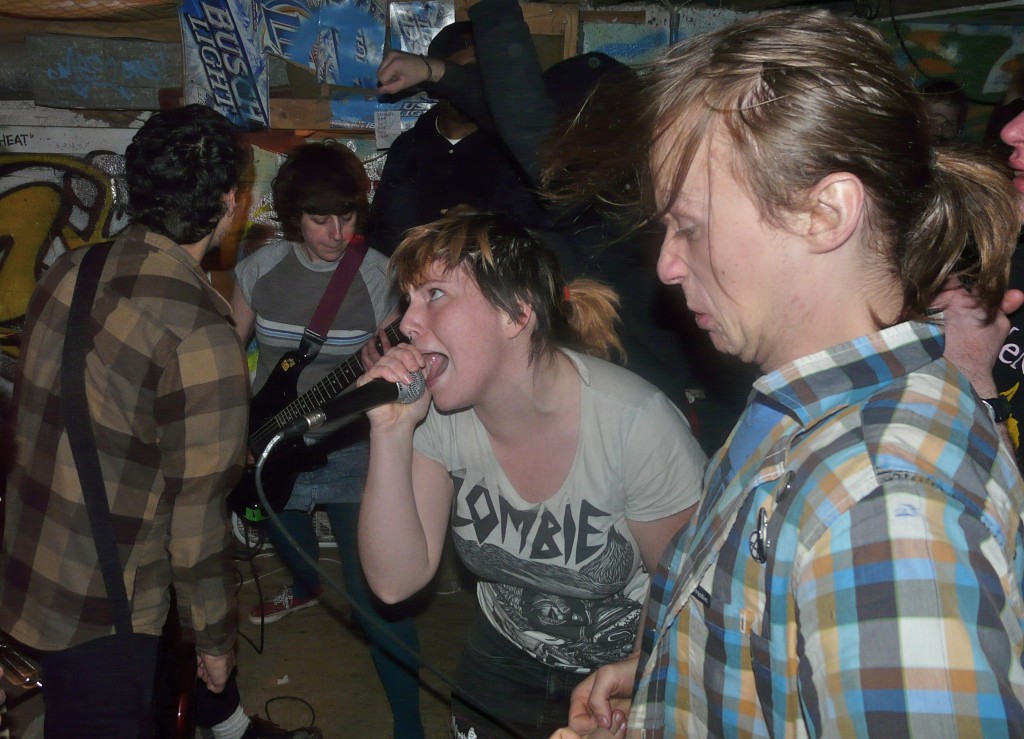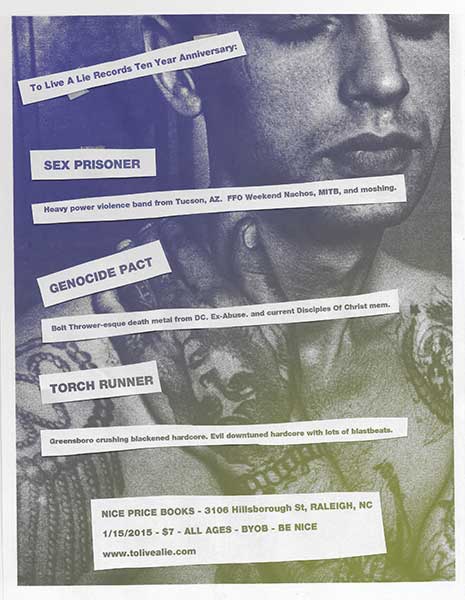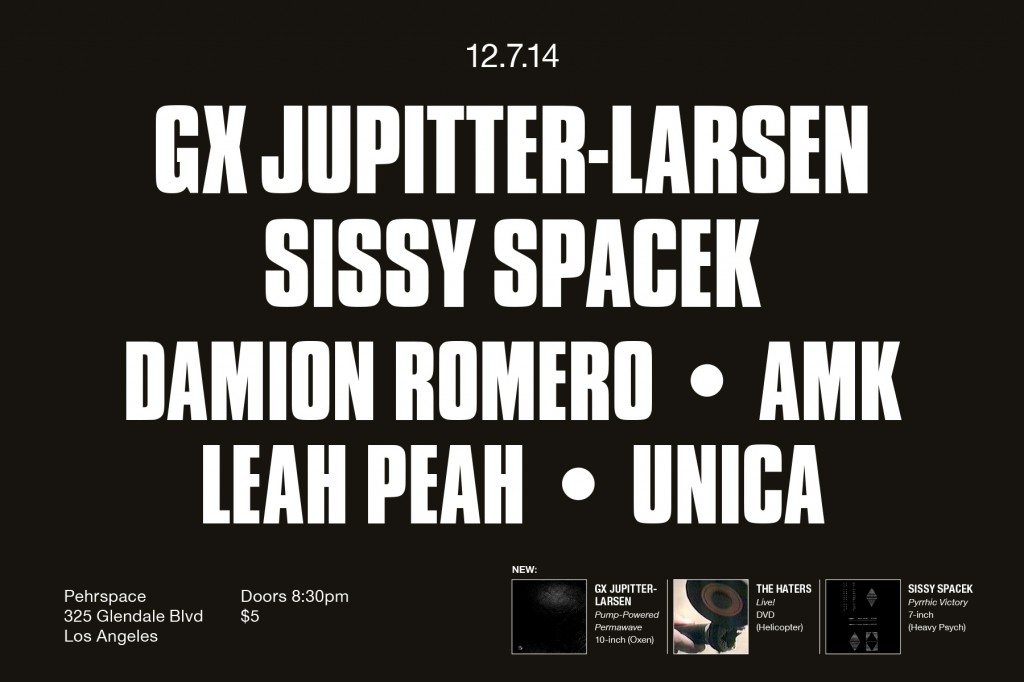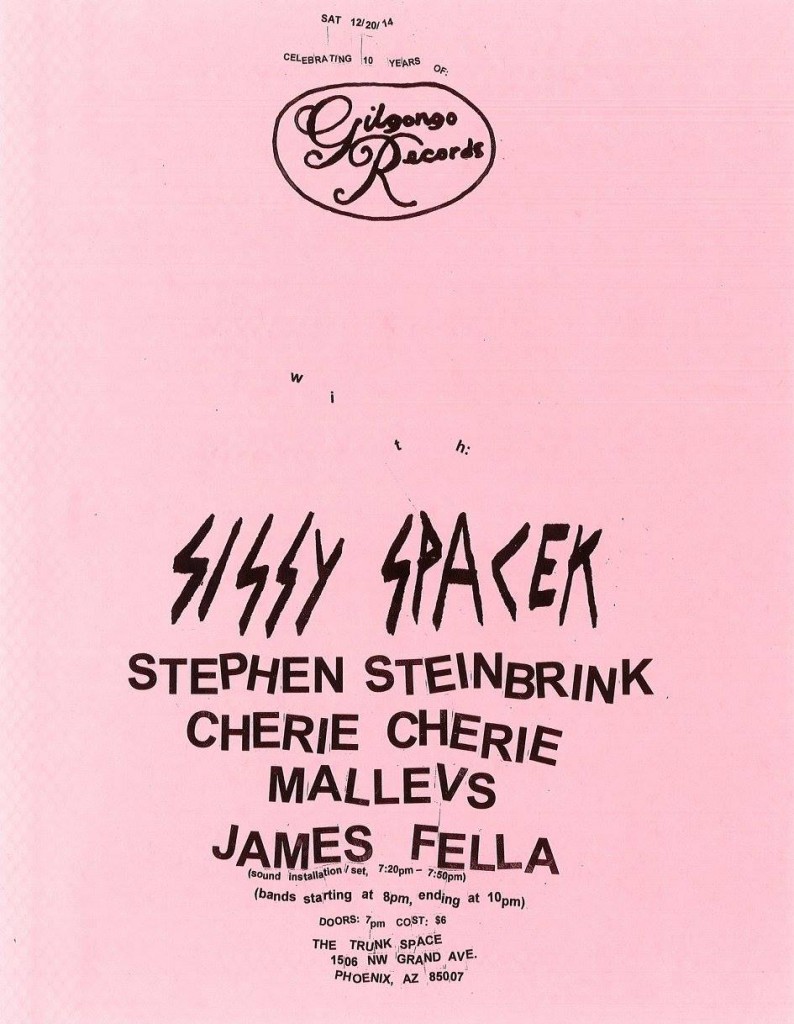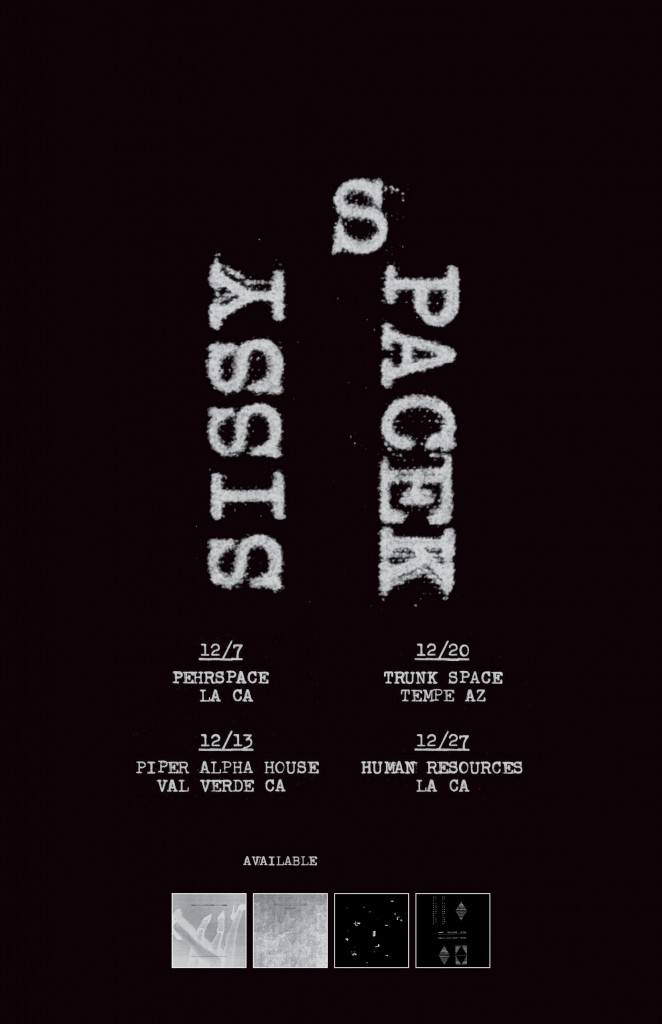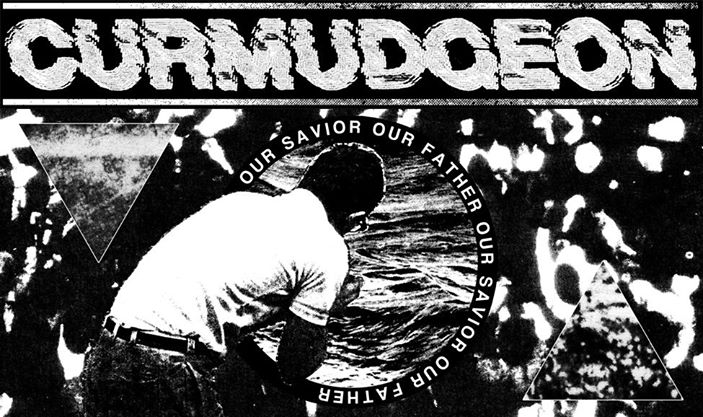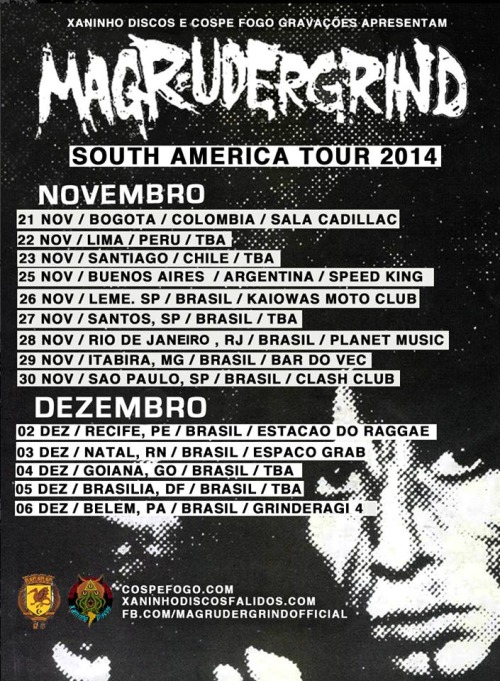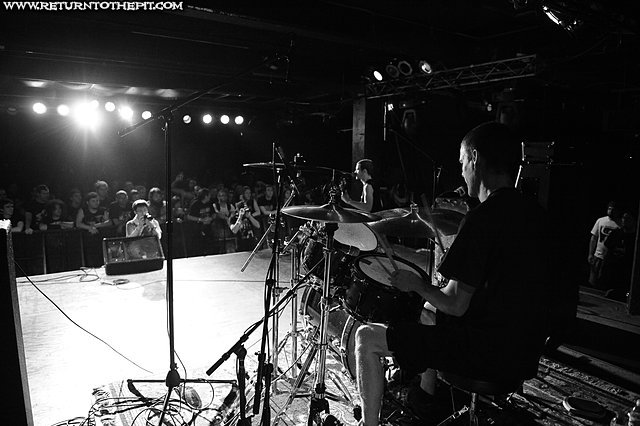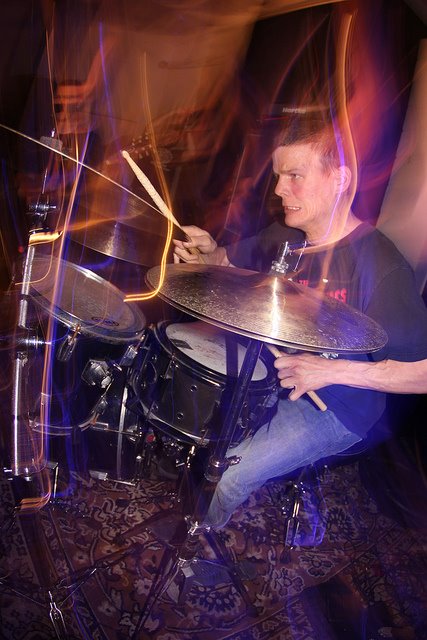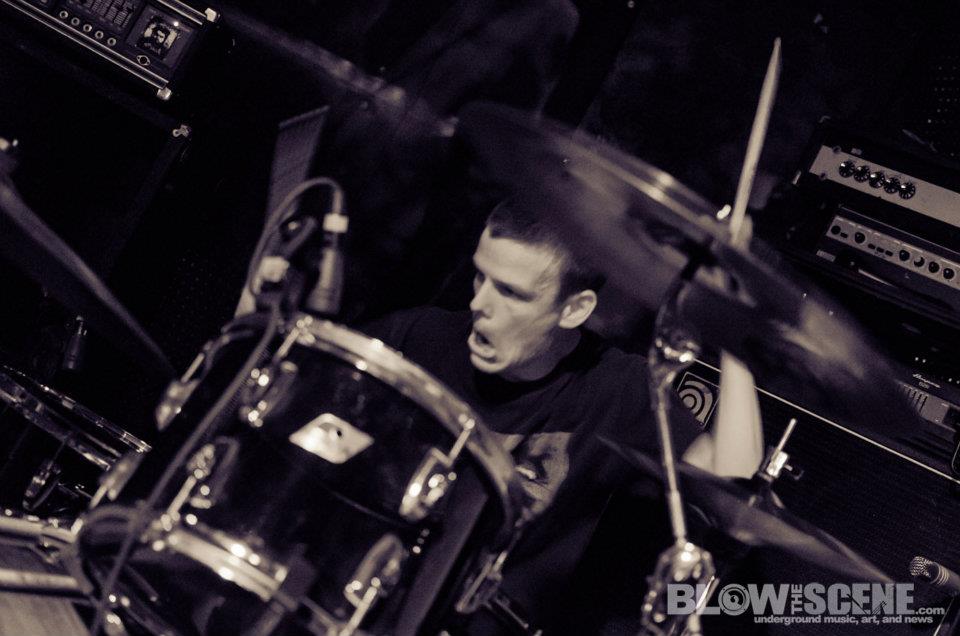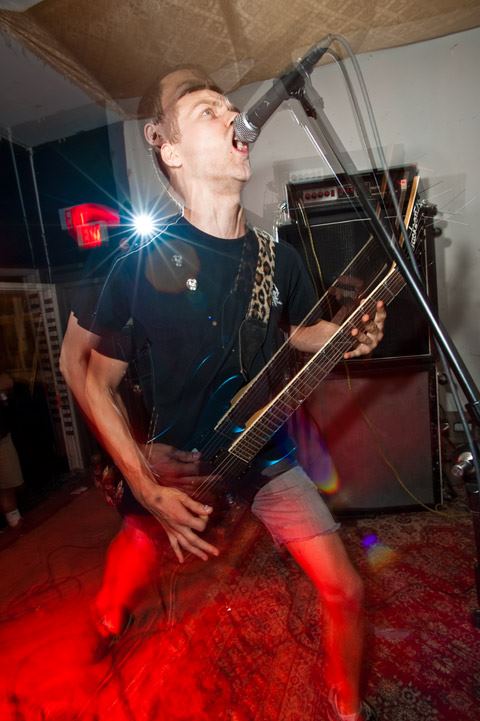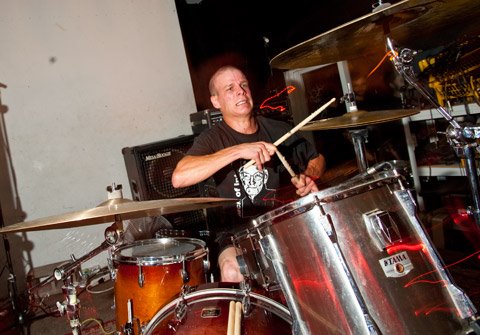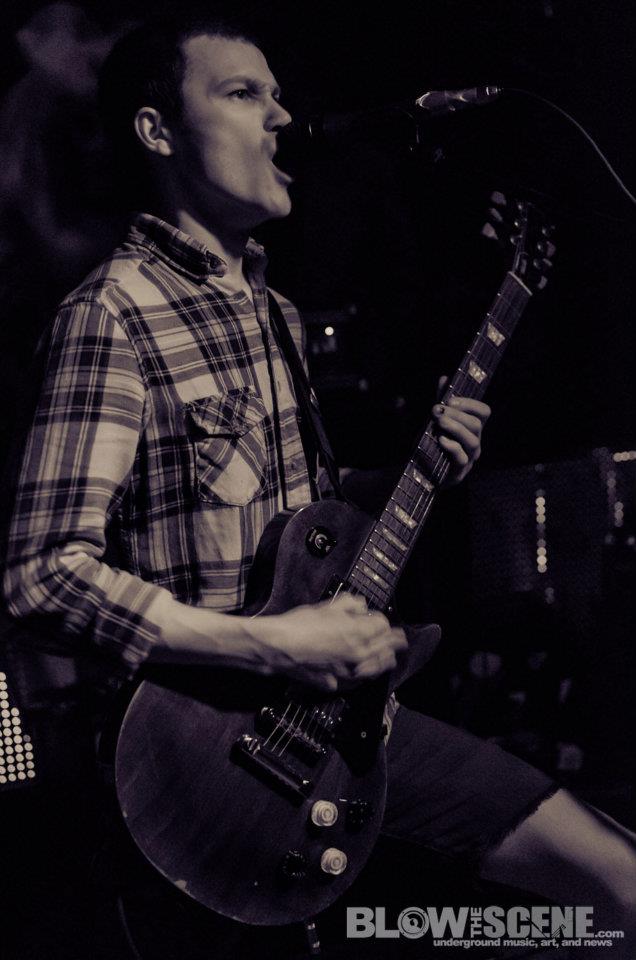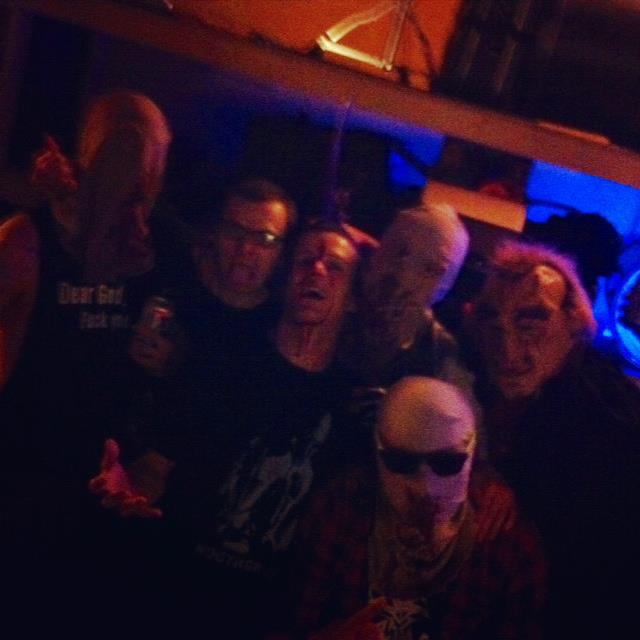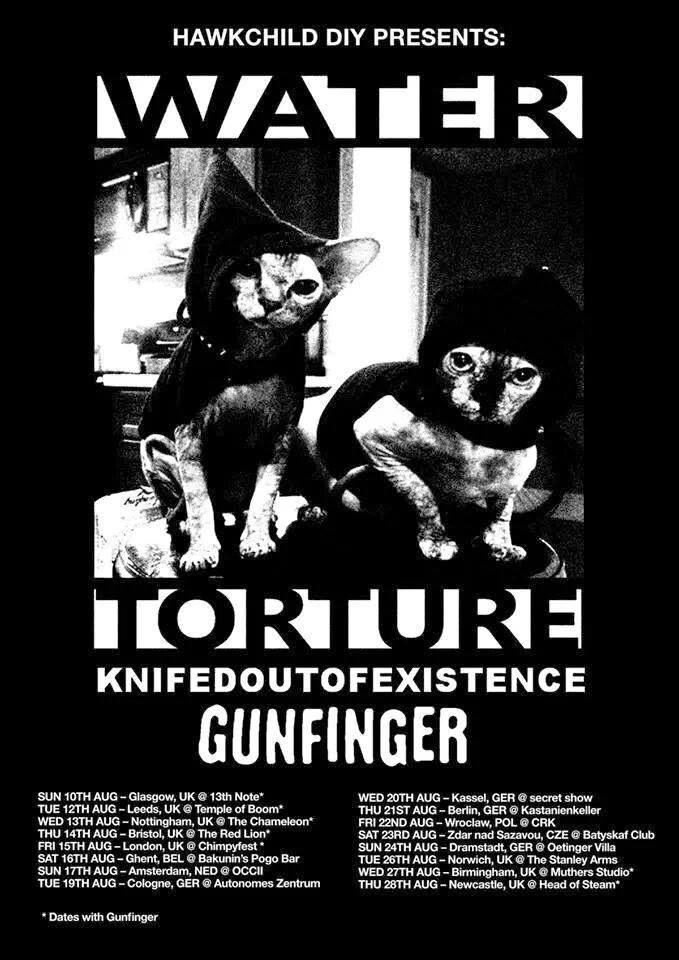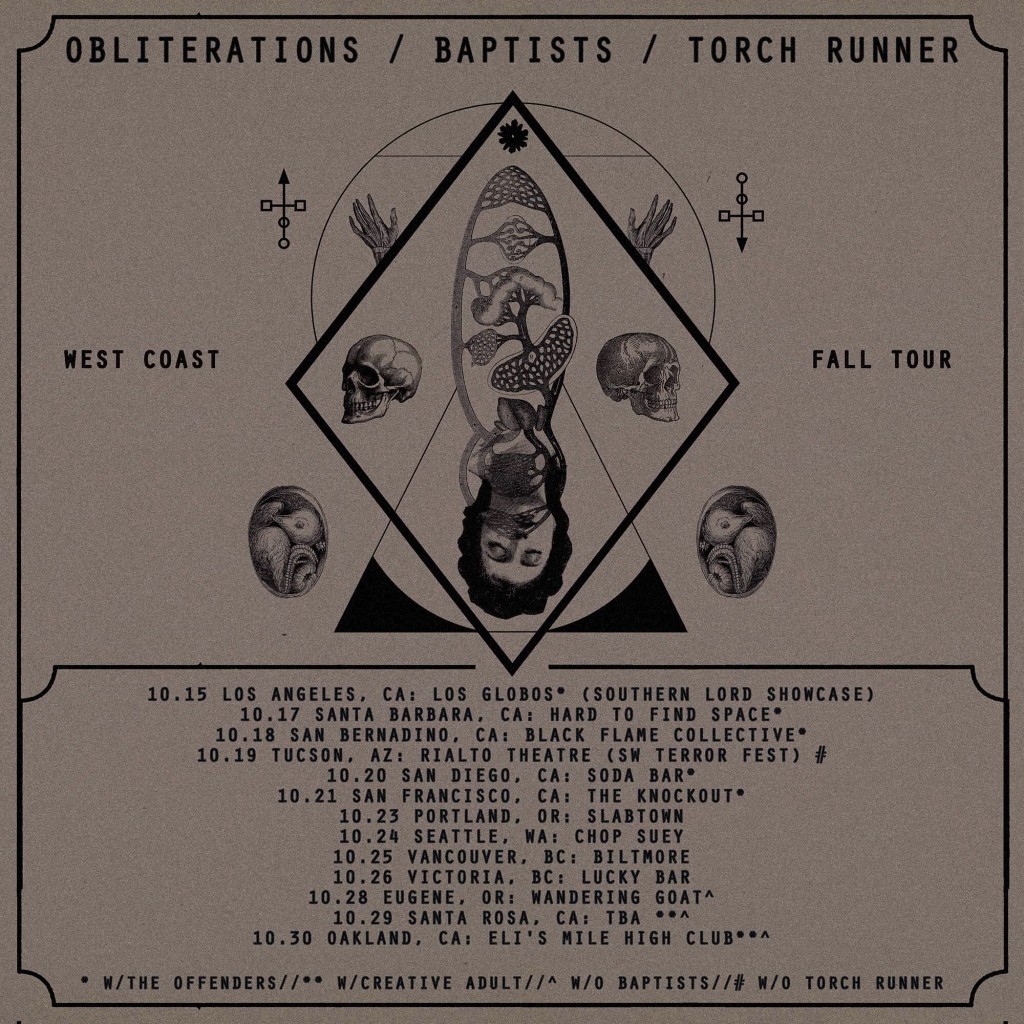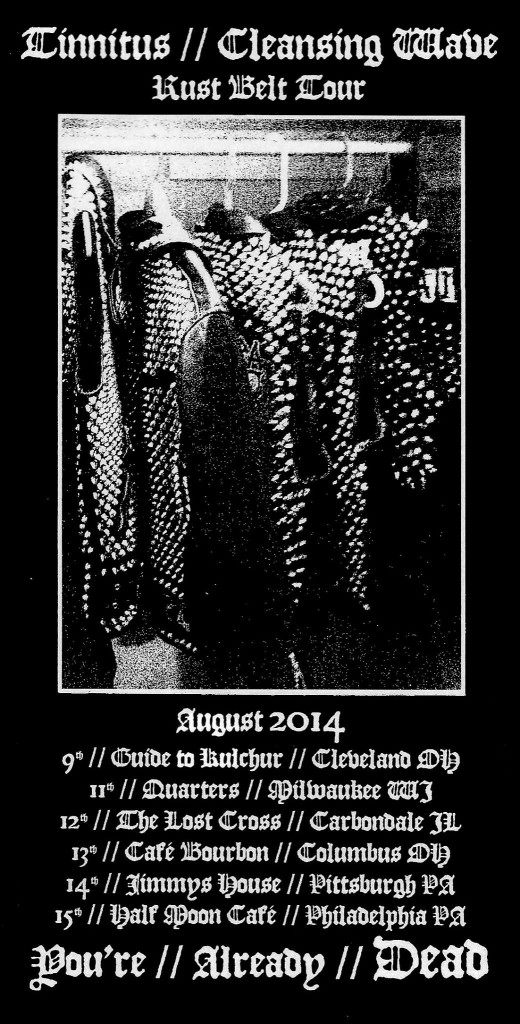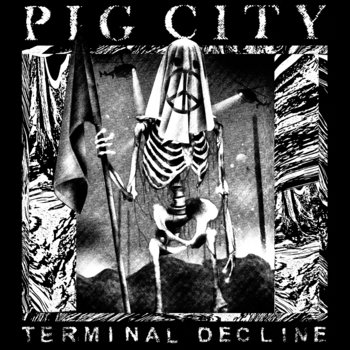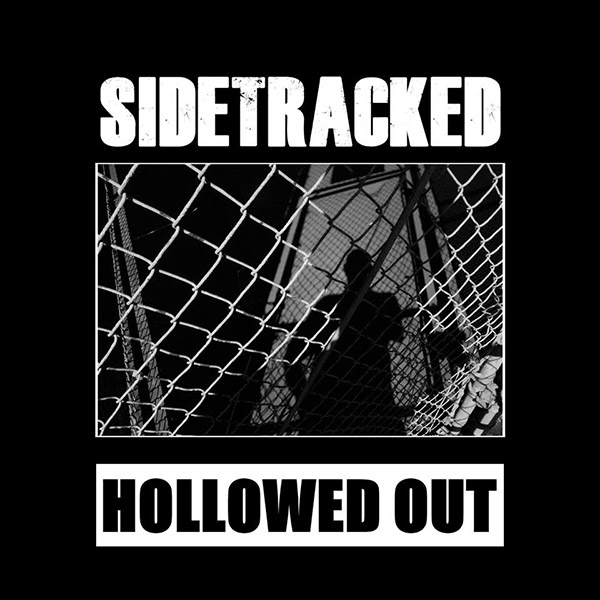Published at: 01:11 am - Saturday November 22 2014
This was originally presented in print in Maximum Rock’N’Roll #328
Photos by Corey Kittrell and Will Butler.
Co-Interviewed by Gordy Tordnado and Will Butler
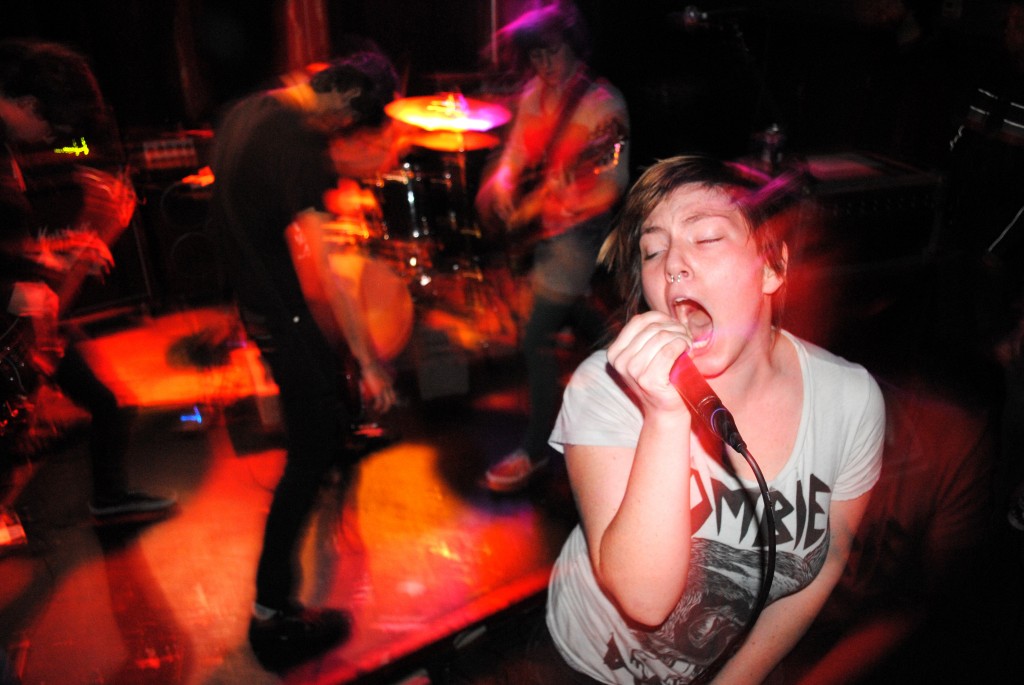
Once every generation a band come along that rocks the foundations of hardcore. For kids in America today, that band is DEATHRATS. No, seriously, this DC hardcore band basically came out of nowhere in the past year turning the heads of crust kids and fastcore nerds of all shapes and sizes. Not only do they bring crucially fast riffs, but their insightful and honest lyrics are a breath of fresh air in a genre dominated by generic carbon copy lyrics sheets. The band currently has one 7″ out on To Live A Lie Records, a split coming out with Stripmines, and more records in the works. On a dark and stormy night in May 2010, Will Butler and I sat down with four of the five Deathrats in a haunted attic in Manassas, VA to glean the following interview. Enjoy. – GT
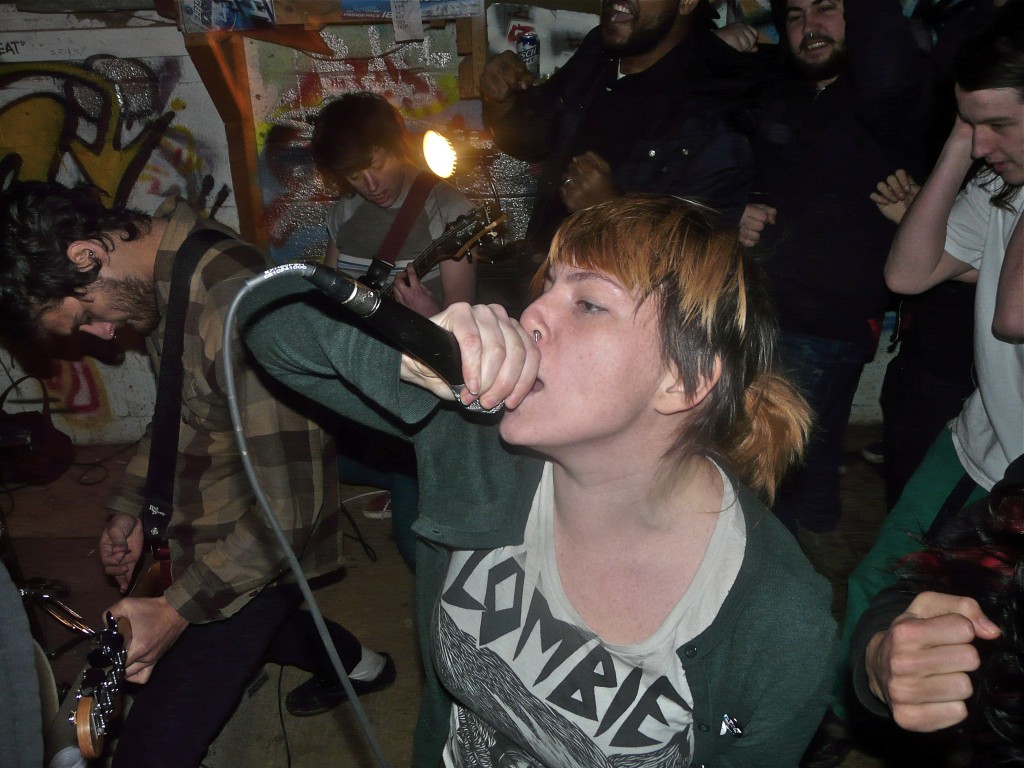
GT: OK. Who the fuck are you?
Christine: In the room right now we have 4/5 of Deathrats, Bradley, Brian, Christine, and Greg. Jaime, who is our second guitar, is currently on the west coast.
GT: How important are riffs to your band? Where do you come up with those riffs?
Brian: We come up with the riffs by listening to the music we like, I guess.
Greg: We rip off the bands that we like.
Brian: We try hard not to rip off the bands that we listen to, but sometimes I suppose we do. I steal most of our riffs from Born Against….and Judgment.
Christine: Brian’s brain in a riff-writing machine.
GT: How important is brevity? You keep your songs respectably short.
Bradley: We are a punk band. We keep our songs short.
Greg: Coming from someone who loves 90’s hardcore when the average song length was like 3 minutes, I get really bored playing long songs. I like songs to be as intense and heavy as possible in the shortest time possible. Minute, minute 30 at the most on average.
Will: This isn’t really a question, but we booked a show for you in Raleigh during the big snowstorm and you had the rest of your tour kind of fall apart. Any other band at that point would have just canceled but you as a band pulled together and drove down here under hazardous conditions and I just wanted to let you know that we really appreciated it!
Greg: I was extremely skeptical that we could fit five people, three guitar heads and three instruments plus bags in a Golf hatchback, but I’m a pretty pessimistic person and it worked out in the end, and that afternoon show was a fucking rager.
Bradley: Honestly, we couldn’t have done it without your help, Will, and the help of Ira and all the bands. They basically let us use whatever we needed in order to get down to Raleigh and were able to play two amazing shows.
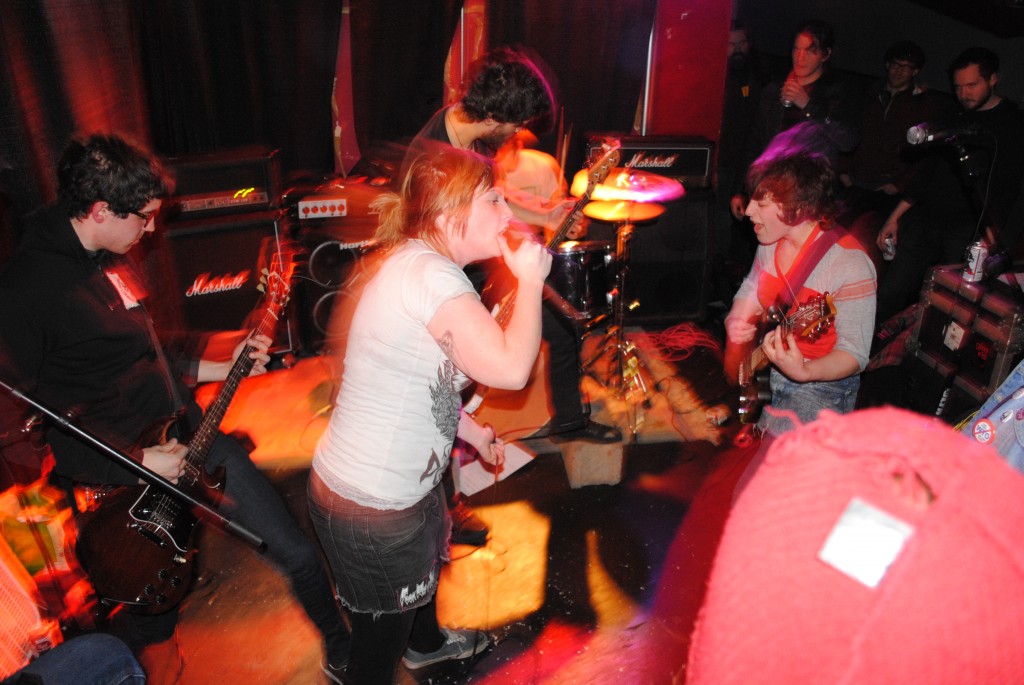
Will: How was your most recent tour?
Greg: All the shows were great. I think it’s really hard for six people to be in a van together for an entire week and not manage to get on each other’s nerves because it happens. In the end, though, I think we all had a great time.
Bradley: I was a bit skeptical about taking our school bus on the road for seven days but it handled like a champ and managed to only need a new battery.
Christine: I had a great time. All the shows we played were awesome. As far as personal interactions, rocky moments are inevitable on any tour. I hope that we got it out of our systems. Or something.
Brian: I think you said it.
GT: I’ve heard stories from your tours where guys at shows have assumed that the female members of the band were all roadies, or even told you guys to smile more. What does it say about punk or hardcore that you still run into dudes with the attitude that girls can’t be in bands or that if they are they should be posing for them? Any anecdotes you’d want to share?
Christine: I think it further proves that punk and hardcore are just microcosms of everyday society, regardless of how different, or even superior, we can see ourselves as being sometimes. It’s totally frustrating because you just feel like people, especially punks, should just fucking know better. I was in a band when I was 15 and some older punk guy wrote on a message board that he wanted to rape me because of the way I scream. That was pretty bad. More recently, Jaime was tuning her guitar and some guy approached her and asked if she was Deathrats’ roadie. Sometimes guys comment to Brian and Greg that they shouldn’t be “making” me or Jaime carry equipment. I feel like almost every woman I’ve spoken with about being in a band has at least one cringe-worthy story about some dumb shit that someone has said or done to them. Especially when it comes to playing an instrument, a lot of dudes kind of assume that you’re carrying in your boyfriend’s stuff, or that if you’re playing, you certainly don’t know what you’re doing. It’s totally disgusting and frustrating that this kind of attitude is still so prevalent.
Bradley: I think that we are really lucky to live in Washington, D.C. and have a scene where there are so many awesome ladies playing in killer bands and I am constantly reminded of this fact when I travel to places where it is more of the exception than the rule. But D.C. also has a long way to go, too.
Christine: That is definitely true. We’re really fortunate to have so many amazing, talented, crazy women playing music in D.C. It’s always really awesome and refreshing to play with other lady-bands on tour, too!
GT: Christine, you said on the Deathrats blog that you’re “tired of hearing straight, white, middle-class boys talking about revolution, because frankly, they don’t know shit. There is so much more that could be said about that.” Care to elaborate?
Christine: Let me rant for a second. The quote from our blog is more aimed toward a frustration with white-boy anarchists who take up tons of time and space babbling about fighting violently for some vague revolution that they will probably never truly understand the need for because they’ve been sheltered by their privilege their entire lives. I definitely don’t think that you have to be exposed to constant and varied oppression in order to have something to say. I’m just frustrated that so many people who don’t seem to get it always seem to be the loudest and most accepted when they speak up. I’m frustrated with the fact that so many white-boy anarchists still use sexist, homophobic and racist language and tactics and don’t realize it until they get called out by someone who is conscious of these things, and typically expect these people to walk them through every step of being accountable, if they are willing to admit fault at all. So, it’s not so much about hardcore or punk, though the social circles are interrelated.
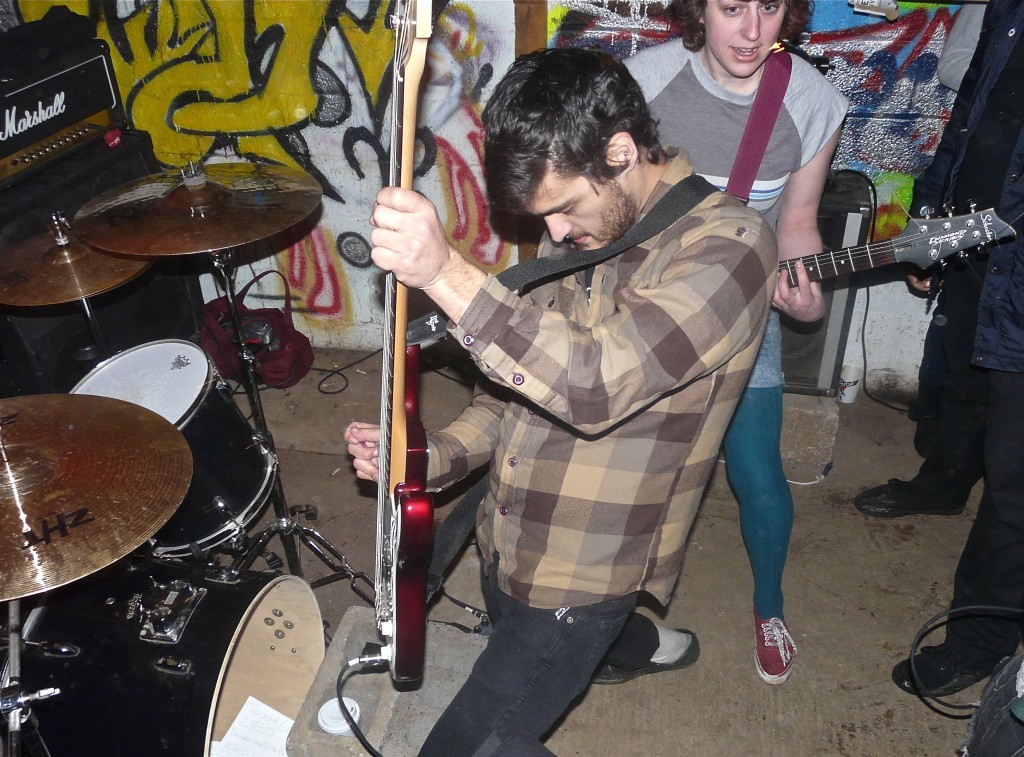
GT: I’ve heard you talk at shows on more than one occasion about how you feel hardcore is saturated with boys who are pissed off but have nothing to say. Why do you think that is? Also, what constitutes having nothing to say?
Christine: At a couple of shows I’ve vented some frustration about how hardcore is starting to bore me because I’m tired of hearing the same thing over and over again. Don’t get me wrong: I really love a lot of hardcore and enjoy going to hardcore shows, but I don’t really care about how some teenage boy from the ‘burbs is mad because his parents and teachers tell him what to do, or about how there are unjust wars, or about fighting drunk people or something. How many hundreds of punk songs have been written about how a war that was going on sucked, and how many of the people writing those songs were actually ever affected by those wars in any kind of way? And it’s not wrong to write about how the government sucks or the war sucks or whatever; I just find it to be obnoxious that people feel like they have to write about things that are so distanced from themselves in order to feel comfortable, and that if you do write about things that are personal to you but still politicized, you’re seen as a bitch, a PC kid, or a hippy. I’m very tired of the labeling and the bullshit.
GT: Imagine someone reading this either doesn’t know or couldn’t give a fuck as to what “male privilege” is. Would you be interested in briefly laying out for the hypothetical reader what male privilege is and how it manifests in hardcore and punk rock?
Greg: At least in punk and hardcore, I think one example of male privilege is the fact that men can mosh hard, stage dive, rush the stage, and sing along without any thought that what they are doing might be taking up too much space (and I will admit I can be very guilty of this) and that this is accepted and a lot of times expected. Also, like mentioned before when Jaime has been assumed that she was a roadie for the band, the norm for most punk and hardcore bands is that they are dudes, so folks tend to rarely think a lady is in a band and get caught with their heads up their asses when they assume they are just on tour with the band.
Christine: I think about male privilege mostly as an entitlement to take on certain roles and behave in ways deemed acceptable for men. It’s the expectation that men can do whatever they want within the realm of whatever is defined as “manly” and not ever have to answer for their behavior. In punk and hardcore it manifests in the way that people take up space, either in terms of numbers, the way that people are dancing, or the way that people are talking. It sucks that women are often talked over or pushed out of the conversation whenever there are talks of bands, shows or records. It sucks that it is kind of assumed that most spaces, punk shows included, are going to just be comfortable spaces for straight, white men.
GT: In the song “Girl Style,” you seem frustrated with the fact that there is so much attention given to riot grrl bands from the 90’s but women today are still pretty unrepresented in the punk scene. Do you think the focus on riot grrl historicizes women’s involvement in punk in a way that makes women involved today feel invisible?
Christine: Well, I think it depends on how you frame it. I think that the way women’s active and visible involvement in punk has been documented in the punk history books tends to limit it mainly to riot grrl. I don’t think it is so much a “focus” on riot grrl, as it is a lack of concern for or documentation of women fronted projects. But I think that the potency of riot grrl transgresses time. It is still totally relevant in the way that it encourages women to take up space, start bands, and mouth off. Also, there is an amazing documentary film about more recent punk-women activity in the US in the works. It’s by KC Oden and it’s called “From the Back of the Room”! Keep your eyes peeled!
GT: How do you feel about dudes pushing women in the pit out of the way to rush the mic and sing along to a song about women empowering women?
Christine: This happens a lot during “Girl Style.” I think it’s awesome that people know the song and feel good about it and want to sing along, but it is kind of weird when I can only see a bunch of guys singing along to a song written to and for other punk women. There is a pretty solid group of awesome punk ladies in D.C. who consistently sing along, though! And when Jen Hauser was on tour with us she always raged to that song! She is really great.
Greg: The end of “Girl Style” is a really raging, catchy riff which I think is why there tends to be a lot of dudes taking up space in the pit. They don’t necessarily make the connection between the lyrics and their actions. I think it’s awesome that anyone gets wild for our band but it is important to understand the context of the situations. We’ve played some shows in D.C. where the ladies have ruled the pit for that song and even most of our set, which I thought, was pretty sweet.
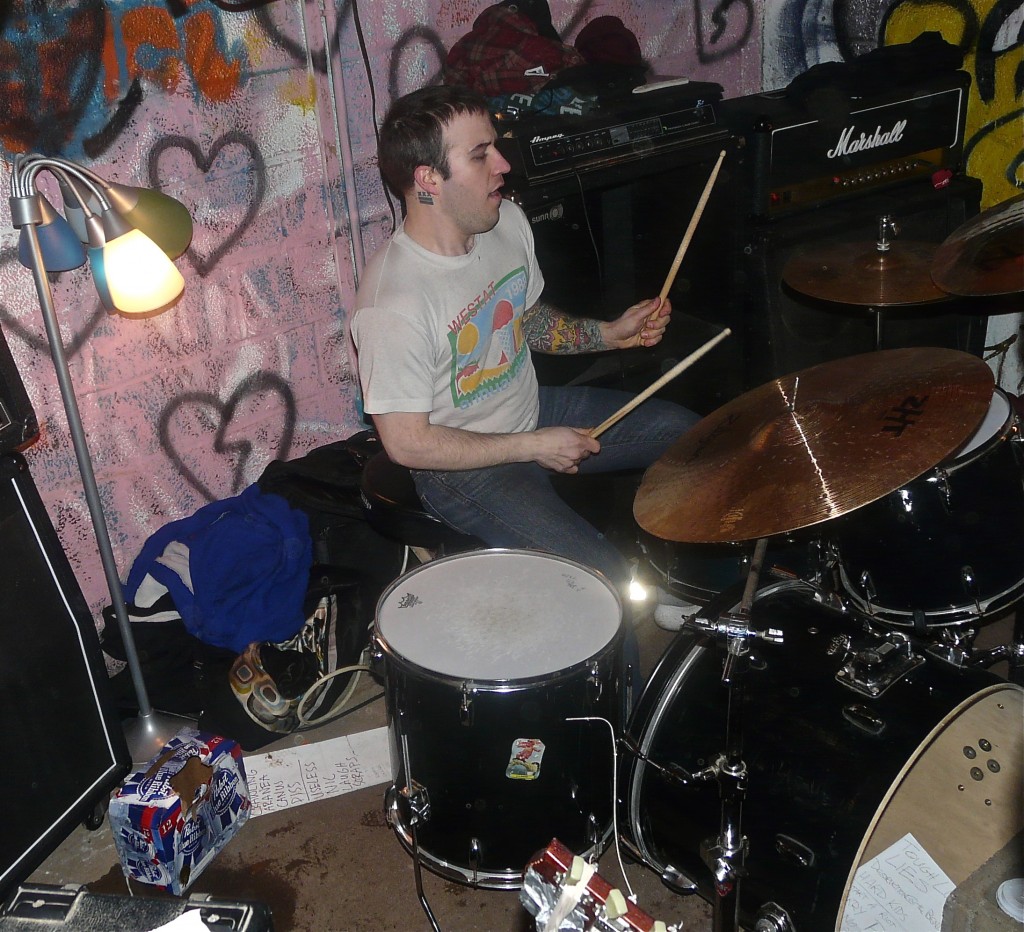
GT: There have been several lineup changes since the original inception of the band. At one of your first shows you covered “Cop Killer” by Body Count and your original singer wouldn’t sing it. Christine, had you been in the band then, would you have sung it?
Christine: Brad did a great job. But yes. Absolutely.
GT: Also what are your perspectives on cover songs? I heard you did a Saves the Day cover once.
Bradley: I personally really enjoy both playing and hearing cover songs at shows. The story of the Saves the Day cover was that Chris, our old guitar player, had learned it shortly before we left for a weekend tour up the East Coast. At our show in Brooklyn, I broke a string and in the interim, the rest of the band played a very sloppy version of handsome boy. As a band, I think it is sometimes difficult to all come together and choose a song to cover and as a result we only have a couple in our repertoire.
Greg: I am into covers. That being said, every cover I want to do gets shot down.
GT: Greg, as the newest bassist, you have a lot to offer. For example you giggle like a school girl when tickled and have an inverted sternum from which you could eat cereal. However, your old bassist, Evil Steve, had the laugh of an angel and the softest pair of hands I’ve ever had the privilege to shake. Do you ever wish you could combine their best assets into one sort of super-bassist?
Greg: If Steve grew the mullet back, I would be into it.
Brian: Only Evil Steve is on the Deathrats recording. Greg has yet to play on a record.
Christine: Yet…maybe. Just kidding.
Greg: I have significantly upped the loud factor of Deathrats which, for better or worse, makes Pat Vogel happy.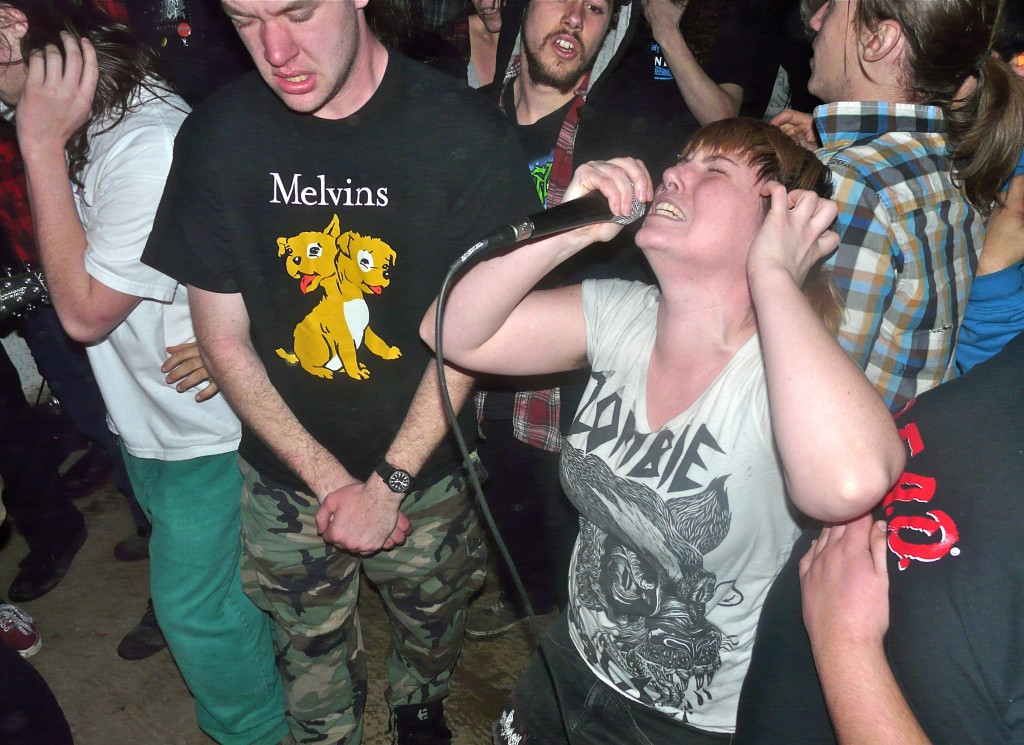
GT: At that show where you covered “Cop Killer,” you dedicated it to Alexandros Grigoropoulos, the Greek teenager who’s murder by police inspired weeks of rioting by anarchists in Greece in 2008. You all don’t seem to have a professed political position, but have made gestures of solidarity with anarchists and animal rights activists in the past. Aside from lyrics, what other ways do you think a band can act politically? Are any of you involved in any kind of activism?
Bradley: As you said, our original singer wouldn’t sing the song “Cop Killer” and me, having no qualms, I volunteered my services. It was about a week after I heard that Alexandros was killed and the riots in Athens were just beginning to heat up. It was very cathartic to sing a song about killing cops and it was a release after feeling so helpless sitting halfway around the world watching injustice. But then again, when the cops kill someone in Washington D.C., it is viewed by some with less outrage because it’s more difficult to relate. I am certainly guilty of this and hate that it is easier to identify with a young, white anarchist in Greece than someone who lives down the street from where I live. I think as a band we all have causes that we feel very passionately about and sometimes those issues find their way into Deathrats’ lyrics. I can say personally that I have been involved in a few projects around the world that I have felt very passionate about, but over the past several years I have fallen into the role of jaded arm-chair anarchist.
Greg: When I lived in Baltimore I was involved with a few labor struggles. I tend to focus my political energy towards the Labor Movement, but since I have been in D.C., I have been laying low on the activism. I do believe though that there is great weight behind the ideology of syndicalism and strength in the union and I plan on focusing my energy towards the Labor Movement as much as I can.
GT: I know some of you are straight edge and some of you are vegan. Do you think issues revolving around personal lifestyle decisions should carry as much weight as they tend to in hardcore?
Christine: Not really. I think that sobriety and changing your diet to make your life better or more comfortable or whatever are valid, healthy, and great. However, I get kind of frustrated when straight edge and veganism are used as identity politics. When it comes down to it, they’re consumer choices. And sure, they are valid and can carry a lot of significance in a person’s life, but I feel like there are more important things in the world.
Greg: Yes. I am vegan and straight edge, but to be honest, I don’t care if you are or aren’t. I think socially conscious people, especially punks, should be vegan but if you aren’t and are totally closed off to the idea, then there isn’t anything I can do so I don’t really care. Why I think personal lifestyle decisions like veganism, less so straight edge, are important in punk and hardcore is because they encourage questioning and challenging of other norms and systems of oppression. All forms of oppression are tied together in one aspect or another.
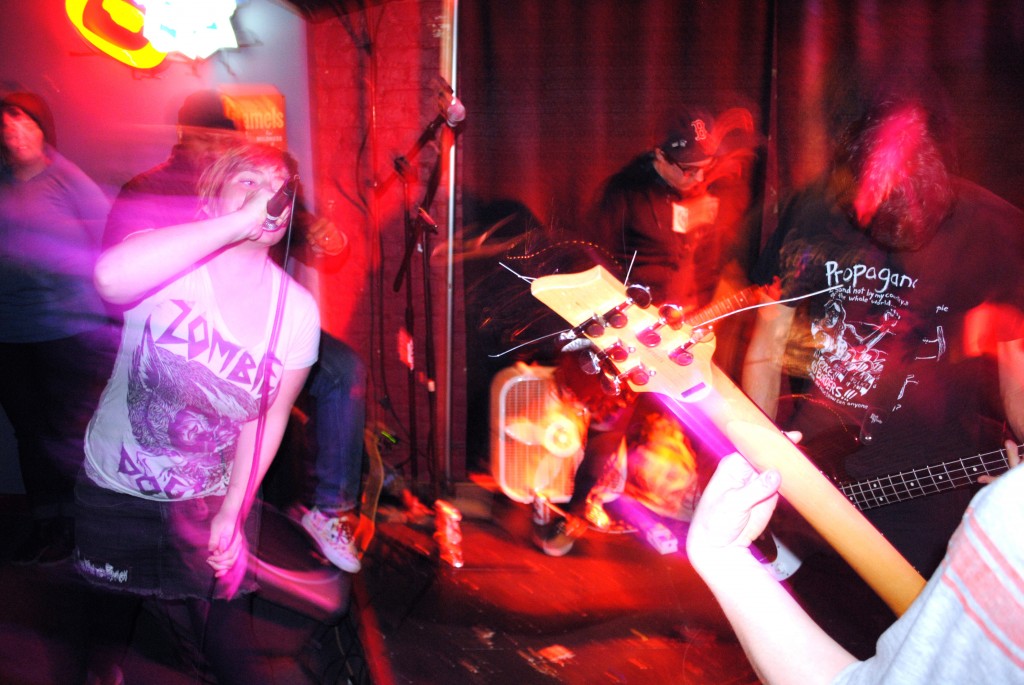
GT: How do you relate to the D.C. hardcore scene? Do you ever feel like you’re too PC for the hardcore kids, too hardcore for the PC kids?
Christine: I don’t even know…if anything, I guess we’re too PC for the hardcore kids sometimes. There is definitely some crossover but I think that some people don’t like us because I write “political” lyrics. Like how it sucks to get sexually harassed. That is probably just a bummer for them to hear about. But I don’t care. It’s cool when people are concerned about making other people comfortable, too…
Bradley: I think that in Washington D.C. we are seen by many as a PC band or whatever the fuck that means. For as long as I have lived in D.C. there has been a rift between the so-called “political bands” and the “hardcore bands” which is complete shit. For the most part the music sounds the same but because of subject matter, people won’t come out or not get into it. And I would say that both sides are equally guilty of this. For me, I don’t consider myself politically correct and I do not embrace the term like I might have in the past. If people think that it’s PC to care about certain issues or take offense when someone calls someone else a “bitch” or a “fag,” then they can say that I’m PC and not watch my band and go fuck off.
Greg: I grew up going to shows and being involved in the Baltimore punk and hardcore scene which is much different than D.C. I think I relate to a lot more folks in D.C. than I did in Baltimore. Baltimore has some amazing spaces but not a lot of kids go to shows. The opposite is true with D.C. If anyone says that we are too “PC,” they are a moron. PC is a term created by the “Right” to belittle people who are trying to make this society a safer space for those who aren’t straight, white, Christian men. How can anyone be too concerned with trying to make our scene better?
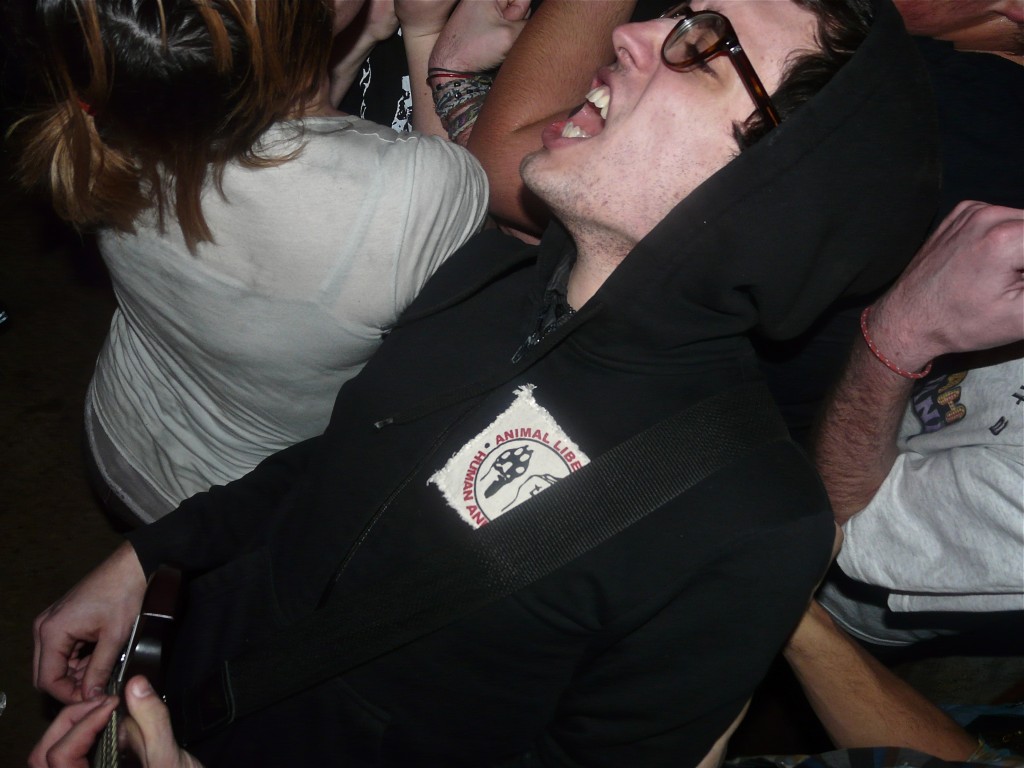
Will: Tell me about other bands you are in, I know that Brad and Brian are in Lotus Fucker and that Christine is also in Cunt Sparrer. Do you folks stretch between any other bands?
Bradley: The nature of Washington, D.C. is that all bands are very incestuous. That being said, Brian and I both play in a noise punk band called Lotus Fucker. Christine, Brian and I play in State Violence. Brian also plays in a band called Rations with Pat who happens to also be in State Violence….you get the idea.
Christine: Well, the D.C. chapter of Cunt Sparrer is definitely over. Jaime and I are in a straight-up punk band with two other women called Hot Mess. A pop punk band is in the works.
GT: Do you think when you roll up to a town where people have heard your record before, they expect you to look crustier? What’s the story about the guy with the Black Flag shirt who didn’t know the words to “I’ve Had It?”
Bradley: I got called a hipster outside of a show in Wisconsin the other month. I think they were probably right, I do sort of look like a hipster. At the end of the day, I don’t care what some hesher thinks of the way I look. If I had been wearing my vest with patches on it, it wouldn’t have been a problem. Y’know?
Christine: I have no idea what people might expect us to look like. So when we played “I’ve Had It,” I gave him a shout out somewhere along the lines of “If you’re wearing a Black Flag shirt and you’re not up here singing along, YOU’RE PROBABLY THE FUCKING HIPSTER.” Too harsh?
Will: What is in store for Deathrats? More touring? New records?
Christine: YES AND YES!!! Hopefully, we will squeeze in a weekend or two over the summer, and we’ve got some songs lined up to record.
Greg: I am really excited for our split with out friends Stripmines from Raleigh, NC
Bradley: Other projects in the works are another record of an unknown size and a two week West Coast tour in the winter.
